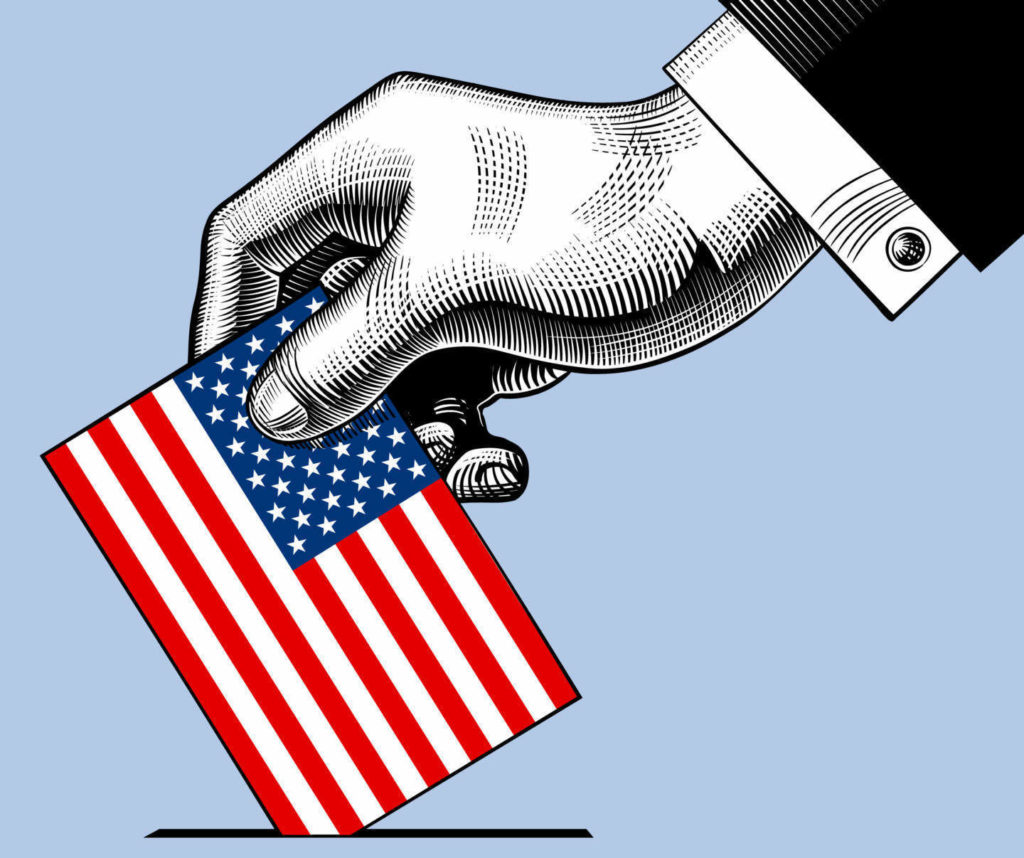An Extreme Example of the Problem with Primaries
Nobody is keeping the gate.

The following is an extreme example, to be sure, but it shows how the lack of any kind of formal gatekeeping function by our parties can lead to, shall we say, problematic candidates (to put it kindly): Boone County man charged with wife’s murder wins Republican primary for town board.
A Boone County man charged with his wife’s murder will be on the November ballot for school board after winning a Republican primary.
Andrew Wilhoite got 60 votes during Tuesday’s primary to pursue one of three open seats on the Clinton Township Board. He was one of three candidates for the board on the Republican ballot, which meant all three would win a nomination.
In March, the Boone County prosecutor filed murder charges against Andrew in the killing of his wife, Nikki.
Nikki’s body was recovered from a creek northwest of Lebanon March 26, after Andrew told detectives that he dumped her there after striking her with a flower pot during a fight outside their farmhouse.
The rest of the report is about the murder in question, not the election. It clearly looks like Wilhoite is going to prison, regardless of the outcome of the November general. Nonetheless, this story is a fairly stark illustration of how our party system works in the US. All a person needs to be a “member” of a party is self-identification. And all one needs to be the official candidate of one of the parties is to win a primary. There are no gatekeepers and if the stars align, you may not need any votes to make it to the ballot (or, perhaps, 60 will suffice).
Again, this is an extreme example of a low-level race, an alleged murderer, and a handful of votes, but it does a pretty great job of illustrating my point about the porousness of our mainline parties.






Uhm, you don’t mention a particular state. Is this journalism? Just wanted to know….
@R Goebel: It is in Indiana, as the link notes.
To me it says more about the citizenry than the nominee.
Sad!
@R Goebel:..Is this journalism?
Everybody likes a little ass but nobody likes a wise ass…
That’s only half the problem.
The other half is that many will vote for this person in the general election rather than for the Democrat (if there is one). See Benito in 2016, and in particular in 2020. Not all those who voted for him in the latter were part of the unhinged base.
When we consider that Trump is a self admitted sexual predator and that he was nominated by the Republican Party primaries this example is not all that extreme.
@Kathy:
Raises (an) interesting question(s), no?
What do we say about the (allegedly) hinged people who voted for him in the general? Granted, it’s a large group who all decided for different reasons*.
In the case of a person who voted Trump for lower taxes, one could make the case that it’s a form of nihilism. Or merely extreme self interest.
Another group (with possible overlap) who may have voted Trump for lower taxes, the (solely self-styled) libertarian…ideological to the point that it resembles religious devotion?
What do we say about an employee of Chevron who figures that Trump is better for their employment prospects? That’s distinct from the group who protects their accumulated wealth in that they rely on their relationship to moneyed interests. Meaning lower taxes are incidental.
I have no idea what to say about that from a mainstream perspective. I have said my piece about this from my lonely corner of the political spectrum: this is an illustration of the totalizing effect that property rights/economics-as-hardscience can have if not constrained/properly contextualized. (A perhaps too-brief conversation about which occurred the other day on one of Joyner’s post.)
And, of course, Republican identity. A large area of exploration that would take several door-stopping volumes to explore properly.
*Whether it’s an example of using reason is up for debate here. But reason from the perspective of describing behavior from the outside is the aim here.
Isn’t more of an example of the freaks who get political in small town America and are Republican? Small-town white America has no gatekeepers for abusive predatory men, period. It just doesn’t. Right-wing Christianity is exactly the same. Trump was not an aberration. He’s the norm for power in the current Republican Party. Look at Dennis Hastert.
A sad story indeed.
Yes there are. They’re voters. Again, I must question this desire to let the American people off the hook. These lunatics don’t win by magic, people choose to vote for them.
@Kathy:
This. But for some reason we like to pretend the American people lack agency here, that they’re controlled by ‘the parties,’ when it’s much the reverse.
A la Germany c. 1930s, the people are the problem.
@DK:
While I agree with this in general, I think Steven is pointing out a different issue: the current Democratic and Republican parties have lost their ability to stand for anything. Because the party cannot vet their candidates in any way, a candidate with any beliefs and agenda can become the parties nominee.
@DK: It’s not “the voters” but rather “the highly-motivated partisans who show up to vote in the party primary.” And, regardless, the point Steven is making is that, while the local, state, and national Republican Party leadership surely did not want this dude as their candidate, they have no way of stopping him from declaring himself a Republican and running for their party’s nomination.
A lot of folks are missing several key points here:
1. He got on the primary ballot via self-selection.
2. He got to use the party label by self-selection.
3. He will win the nomination because, as the story notes, “He was one of three candidates for the board on the Republican ballot, which meant all three would win a nomination.”
4. He only got 60 votes in any event.
This all shows how when we talk about the parties, either party, they are not constructed in some coherent manner that makes it as easy to talk about The Party as we like to do.
Beyond that: if anyone on here thinks that they have always known, with utter certainty, who they were voting for on the long ballots of the US, I would suggest you that person or persons is deluding themselves.
@MarkedMan: @James Joyner: Yup.
@DK:
Note, again, “He was one of three candidates for the board on the Republican ballot, which meant all three would win a nomination.”
So how are the voters to blame here?
Beyond that, I will say that I have voted in a large number of elections in my day–the ballots in a given election might be three pages in length and have on them sometimes two dozen offices. The odds that I have voted for someone who was actually unfit for offices in those many decades is pretty high because I often have to rely on party label as the only signaling device I have for some down-ballot race.
This is more likely true when I have voted straight party tickets.
Indeed, one of the drawbacks of the abundance of choices we have on the ballots is that we often really don’t have a full picture of what we are voting for, save in the vaguest of terms. And while we ostensibly rely on the parties to help us know what we are voting for, there really is nothing controlling what those parties stand for because the candidates are all largely the result of initial self-nomination.
@DK: I don’t think that it’s lacking that is the problem. The problem is voters not exercising the agency have with adequate vigor.